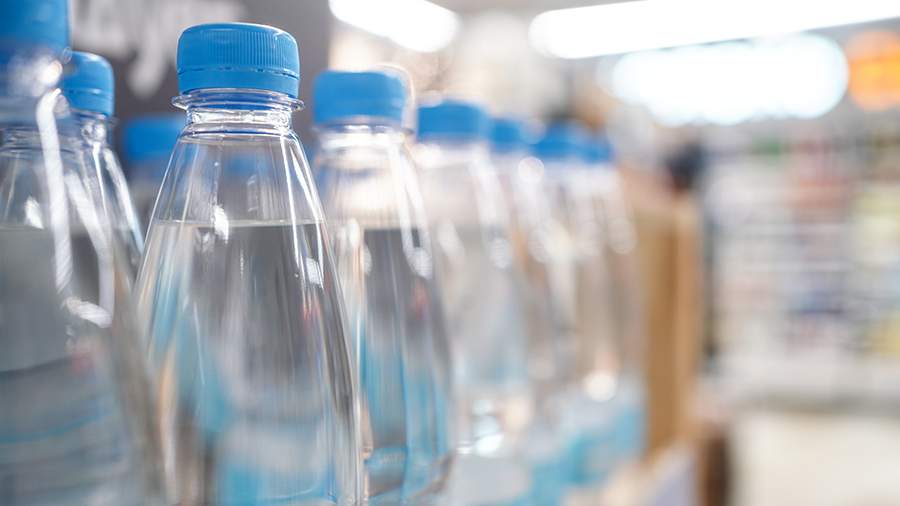Physician urged to follow water regimen to maintain cholesterol levels

Cholesterol is an important element of human life, which has its importance in key processes of the body, including the construction of cell membranes, production of steroid hormones. That said, it comes in "good" and "bad" forms. Tatyana Meshcheriakova, a nutritionist and expert in the field of healthy nutrition of Level Kitchen service, told Izvestia on January 31 about its peculiarities and urged to keep cholesterol values normal on a regular basis, and as a preventive measure to follow a water regime and exclude certain foods from the diet.
"Cholesterol moves in the bloodstream and in cellular structures with the help of transport protein, forming protein-fat complexes (lipoproteins) of high, low and very low density. Useful cholesterol is high density lipoproteins, which are extremely important for the body, while low and very low density lipoproteins or "bad" cholesterol are prone to precipitate in the vascular bed and to deposit in the form of fatty plaques. The predominant number of "bad" cholesterol over "good" cholesterol indicates a high risk of developing atherosclerosis of blood vessels - is defined as a high atherogenicity index", - explained the expert.
The doctor specified that up to 80% of all cholesterol circulating in the blood - it is endogenous, that is, the one that is synthesized by the body itself. And only about 20% of cholesterol enters the body with food. That's why for healthy cholesterol values is responsible for both the normal functioning of the body and the type of diet.
"Normalization of drinking is the first and most important point of prevention of healthy blood cholesterol values. Cholesterol is involved in building cell membranes. In case of chronic dehydration or low water intake to maintain normal functioning of cells and protect them from significant loss of intracellular fluid, the body will be forced to synthesize additional, and therefore excessive amounts of cholesterol," Meshcheryakova said.
According to her, dehydration of the body is a frequent cause of failure of various physiological processes. These include heartburn, increased stomach acidity, electrolyte metabolism disorders, dry hair and skin, and crunching of joints. Then can follow more serious violations: a tendency to stone formation in the kidneys and gallbladder, salt deposition, joint disease, hypertension.
"That is why the first place in the prevention of hypercholesterolemia comes to the observance of water balance: at least 30 ml of clean drinking water per 1 kg of weight daily. It is also important to note the need to reduce the consumption of unnecessary unnecessary drinks: carbonated sweet and with artificial additives," - said the doctor.
Speaking about diet, she emphasized that an important rule in the prevention of cholesterol levels will be the consumption of a sufficient amount of products that improve the processes of fat metabolism. These are foods containing polyunsaturated omega-3 fatty acids (fatty fish, flaxseed, mustard and other natural oils), as well as vegetables and cereals rich in fiber (different types of cabbage, beets, pumpkin, turnip, zucchini, whole-grain bread, coarse oatmeal, millet, pearl millet). They are able to increase the level of "good" cholesterol and thus contribute to the normalization of fat metabolism.
"To maintain the norm of cholesterol in the blood, I recommend minimizing or giving up several groups of products. First, from animal by-products: beef and pig brains, liver, kidneys, lungs of animals and birds (cholesterol content in these products is maximum, over 1000 mg per 100 g product). Secondly, you should minimize the use of egg yolk (250-300 mg of cholesterol in one yolk), fatty dairy products (fatty cheeses up to 1000 mg/100g, butter and fatty sour cream up to 100mg/100g). It is also important not to abuse sausages and some types of seafood (shrimp, oysters, caviar)," the expert said.
Meshcheriakova also added that to prevent healthy blood cholesterol levels, it is important to severely limit the consumption of confectionery products containing trans fats: margarines, confectionery fat, any altered vegetable oils, including palm oil. All this disrupts and alters fat metabolism, affects metabolism, which can lead to irreparable consequences.
Earlier, on January 29, doctor-gastroenterologist, endoscopist of the Gastro Clinic Natia Chekhoeva told "Izvestia" that the systematic consumption of excessive calories inevitably overloads the body. This not only increases body weight, but also puts a strain on internal organs, including the heart, liver, and pancreas.
Переведено сервисом «Яндекс Переводчик»

